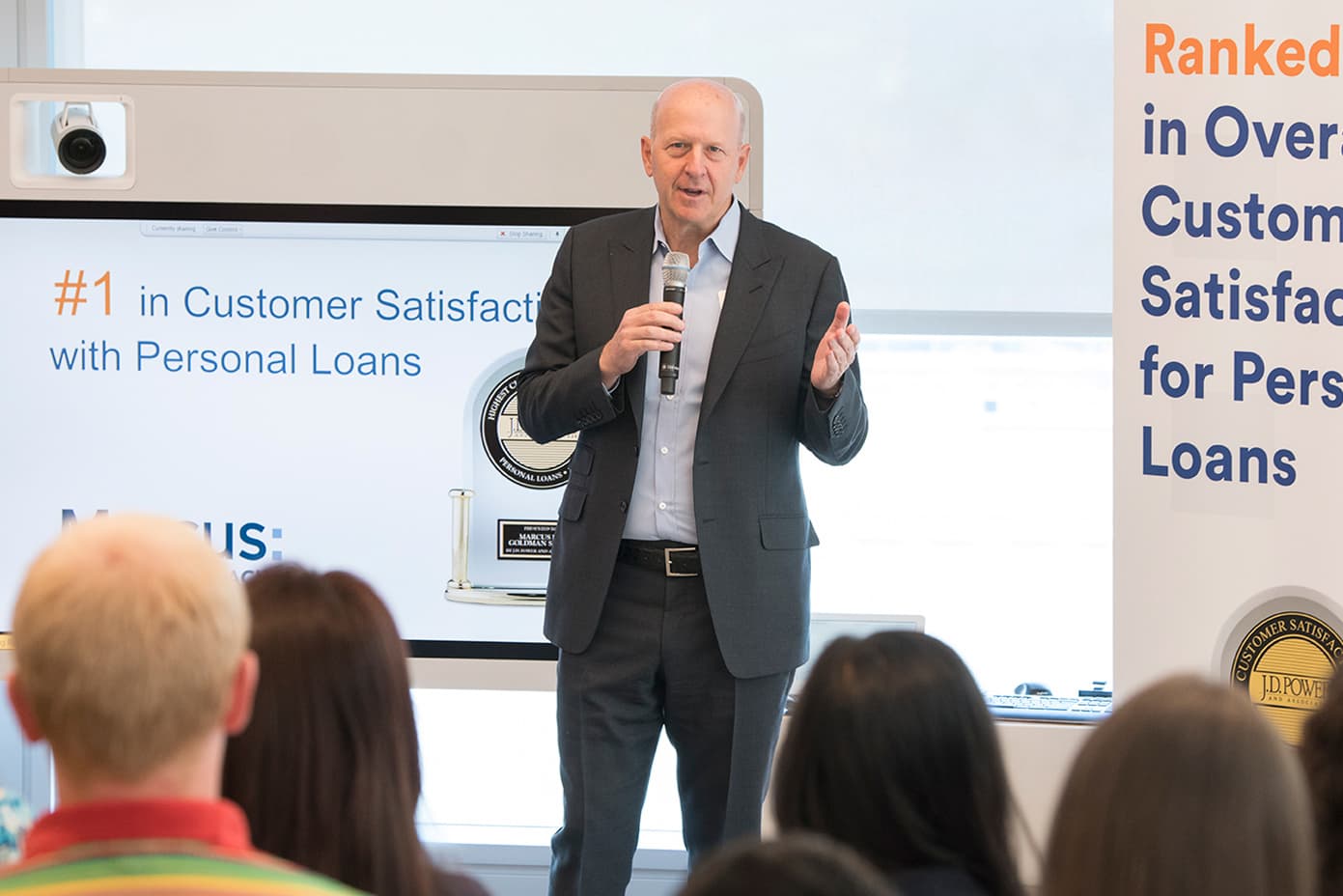David Solomon, Goldman Sachs, at Marcus event
Goldman Sachs is in talks to offer small business loans to merchants on Amazon‘s sprawling e-commerce platform, according to a person with knowledge of the plan.
The bank has been working on software that would allow it to plug into Amazon’s existing loan platform, said the person, who declined to be identified speaking about negotiations.
Last week, Goldman executives led by CEO David Solomon gave investors a vision for the bank’s future, which includes becoming a “banking-as-a-service” provider for the business world. That means offering its digital services and know-how across retail, commercial or institutional banking in partnerships with big corporate clients.
The deal, if closed, would mark the second tech giant using Goldman as a back-end provider of bank-regulated services. The bank helped Apple launch its first iPhone-integrated credit card last year, resulting in about $2 billion in loans as of the end of last year.
The move to begin making loans to small businesses in the latter stages of a decade-long U.S. economic expansion may increase the risks Goldman is taking on. But Goldman executives including CFO Stephen Scherr have been adamant that the bank can manage these risks. For instance, the bank has slowed lending to Marcus personal loan customers in the last year.
Spokespeople for Goldman and Amazon declined to comment on this story. Amazon told the Financial Times, which reported on the negotiations earlier Monday, that lending was “part of the services, tools, programs and infrastructure we provide to our selling partners, mostly small and medium-sized businesses, who account for more than half of everything sold in Amazon’s stores.”
Amazon started its small business lending operation in 2011, using algorithms to help determine which businesses should receive money. The loans are for 12 months or less and range in size from $1,000 to $750,000, Amazon said in a 2017 release.
Amazon has used Bank of America for its small business lending program in the past, CNBC reported in 2018. The growth of the invitation-only program had slowed as Amazon took a measured approach to the risks involved, a person with knowledge told CNBC.
